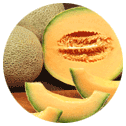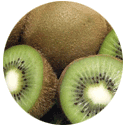Orange Health Benefits And Nutrition Values
Delicious and juicy Orange fruit contains an impressive list of essential nutrients, vitamins, minerals for normal growth and development and overall well-being. orange is the citrusFruit belonging to the family of Rutaceaeof the genus Citrus (which also includes pomelo, tangerine (mandarin orange) and grapefruit). Scientifically the fruit is named as "Citrus sinensis". Orange juice is an important part of many people's breakfast. The "sweet orange", which is the kind that are most often eaten today, grew first in Asia but now grows in many parts of the world.

Nutrient |
Amounts/Selected Serving |
DV% |
|---|---|---|
Calcium |
72.0mg |
7% |
Iron |
0.2mg |
1% |
Magnesium |
18.0mg |
4% |
Phosphorus |
25.2mg |
3% |
Potassium |
0.0mg
|
9% |
Sodium |
0.0 mg |
0% |
Zinc |
0.1mg |
1% |
Copper |
0.0mg |
4% |
Manganese |
0.0mg |
2% |
Selenium |
0.9mcg |
9% |
Fluoride |
~ |
Nutrient |
Amounts/Selected Serving |
DV% |
|---|---|---|
TotalCalories |
84.6 (354 kJ)
|
4% |
Carbs |
77.1(323 kJ)
|
|
Fat |
1.8 (7.5 kJ)
|
|
Protein |
5.7 (23.9 kJ) |
|
Alcohol |
0.0(0.0 kJ) |
Nutrient |
Amounts/Selected Serving |
DV% |
|---|---|---|
Cholesterol |
0.0mg |
0% |
Phytosterols |
~ |
~ |
Nutrient |
Amounts/Selected Serving |
DV% |
|---|---|---|
Fat |
0.2g |
1% |
Saturated Fat |
0.0g |
0% |
Monounsaturated fat |
0.0g |
|
Polysaturated Fat |
0.0g |
|
| trans fatty acids |
0.0mg |
|
transmonoenoicfattyacids |
0.0mg |
|
trans-polyenoicfattyacids |
0.0mg |
|
Omega-3 fatty acids |
12.6mg
|
|
Omega-6 fatty acids |
32.4mg |
Nutrient |
Amounts/Selected Serving |
DV% |
|---|---|---|
Vitamin A |
405IU |
8% |
Vitamin B6 |
60.1 mgmg |
5% |
Vitamin B12 |
120.0 mcg |
0% |
Vitamin C |
95.8mg |
160% |
Vitamin D |
~ |
~ |
Vitamin D3 |
0.0mg |
|
Vitamin E |
0.3mg |
2% |
Vitamin K |
0.0 mcg
|
|
Thiamin |
0.2mg |
10% |
Riboflavin |
0.1mg |
4% |
Niacin |
0.5mg |
3% |
Pantothenic |
0.3mg |
5% |
Choline |
15.1mg |
|
Betaine |
~ |
|
Folate |
54.0 mcg |
5% |
Nutrient |
Amounts/Selected Serving |
DV% |
|---|---|---|
carbohydrates |
21.1g
|
7% |
Dietary Fiber |
1.0g |
4% |
Starch |
0.0g |
|
Sugars |
5.9g |
Nutrient |
Amounts/Selected Serving |
DV% |
|---|---|---|
Protein |
1.7g |
3% |
Nutrient |
Amounts/Selected Serving |
DV% |
|---|---|---|
Alcohol |
0g |
|
Water |
156g |
|
Ash |
0.8g |
|
Caffeine |
0.0mg |
|
Theobromine |
0.0mg |
- ARTERIOSCLEROSIS
- CANCER
It is commonly known as hardening of the arteries. Arteriosclerosis is a disease characterized by thickened and hardened artery walls. This is caused due to excess intake of fats. While consuming too much fats, fatty substance, cholesterols, cellular waste product, calcium and many other material building up in an artery. The substance building up in the blood vessels can significantly reduce the blood flow in an artery, therefore can lead to high blood pressure, heart disease, and stroke. Regular consumption of vitamin C retards the development of hardening of the arteries. The vitamin C in oranges can prevent hardening of the arteries and thus, prevent arteriosclerosis.
Oranges play a significant health benefit in preventing cancer. for example, the Mediterranean diet, which includes a considerable amount of citrus, is associated with a low incidence of cancers of the breast, lung, pancreas, colon, rectum, and cervix. citrus fruits contain numerous known anticancer agents possibly more than any other food.
In the oil of the peel of citrus fruits is a phytonutrient known as limonene. Oranges, mandarins, lemons, and limes contain significant amounts of limonene in the peel and smaller quantities in the pulp. Limonene stimulates our antioxidant detoxification enzyme system, thus helping to stop cancer before it can even begin. (It's reassuring to know that a natural chemopreventive phytonutrient can work to prevent the process of carcinogenesis at the earliest stages.)
Vitamin C, abundantly available in oranges, also plays a role in fighting cancer. In fact, there's a relatively consistent inverse association of vitamin C with cancer of the stomach, oral cancer, and cancer of the esophagus. This makes sense, as vitamin C protects against nitrosamines, cancer-causing agents found in food that are thought to be responsible for instigating cancers of the mouth, stomach, and colon.
- SPERM REPAIR
- KIDNEY STONE
- HEART DISEASE
An orange a day is also sufficient for a man to keep his sperms healthy. Vitamin C, an anti-oxidant, protects sperms from damage that may cause a birth defect. It helps to keep the sperm as much as healthy .hence those who have this problem can consume orange juice daily
A glass of orange juice daily helps to prevent kidney stones better than other citrus juices like lemonade. Many people think all citrus juices prevent the formation of kidney stones. But not all citrus juices have the same protective effect in people at risk for the painful condition.Kidney stones develop when minerals and other chemicals in the urine become too concentrated. At same time these crystals bind to form a stone.
The Vitamin C rich in oranges are very good for health. This citrus fruit has a big positive impact on the heart health. Oranges are highly nutritious fruits and the powerhouse of Vitamin C. They also contain good amount of dietary fiber. Other than these, oranges are very good sources of folate, Vitamin B1 or thiamine, Vitamin A, potassium and calcium. Oranges are known for their phytochemical power as well. They contain loads of phytochemicals or phytonutrients. These plant chemicals are crucial for the human health as they protect against many diseases. These phytonutrients such as citrus flavanones, anthocyanins, hydroxycinnamic acids, and polyphenols, in combination with Vitamin C make it a great fruit for the health. In addition, a flavanone called hesperidin in oranges is known for its ability to improve heart health.
Vitamin C plays an important role to keep the heart healthy. It fights against free radicals and prevents the damage in the cells. In this way Vitamin C prevents cholesterol to be oxidized. Oxidized cholesterol sticks to the artery walls, builds up plaques, which blocks or prevents the blood flow and that can lead to heart attack or stroke. Vitamin C, by neutralizing free radicals and preventing the oxidization of cholesterol, helps to keep the heart healthy and risk free.M
The orange juice is very good for reducing blood pressure levels. flavanone,in oranges improves blood vessel function and also lowers high blood pressure level. It is helpful in reducing blood cholesterol levels as well. The citrus fruits, oranges are fat free and cholesterol free. In addition, they are very good sources of dietary fiber. A diet that is fat free and cholesterol free and rich with fiber is always great for the heart health.
Folate also plays an important role in heart health. It processes the amino acid homocysteine in the body and if the folate is not sufficient in the body then unprocessed homocysteine accumulates in the blood. This can lead to heart attack.Other minerals in oranges are also important for the heart. Potassium is very helpful in reducing the blood pressure levels and in preventing stroke. Calcium is a very helpful mineral for maintaining blood pressure levels as well. It is also required for nerve transmission and regulation of heart muscle contraction.
PERSON WHOM MAY NOT CONSUME ORANGE
- NEPHROTIC SYNDROME
Nephrotic Syndrome patients cannot eat orange. It is cold in nature. The aged with deficiency-cold of stomach, intestines, kidney, and lung function should not eat too much, so as to avoid occurring symptoms of stomachache, aching and limp waist and knee. It will be easy to get inflamed, causing tongue festered, hot and pyogenic eyes, and piles. Orange contains erythrophyll, overeating will cause yellow pigment deposition.















